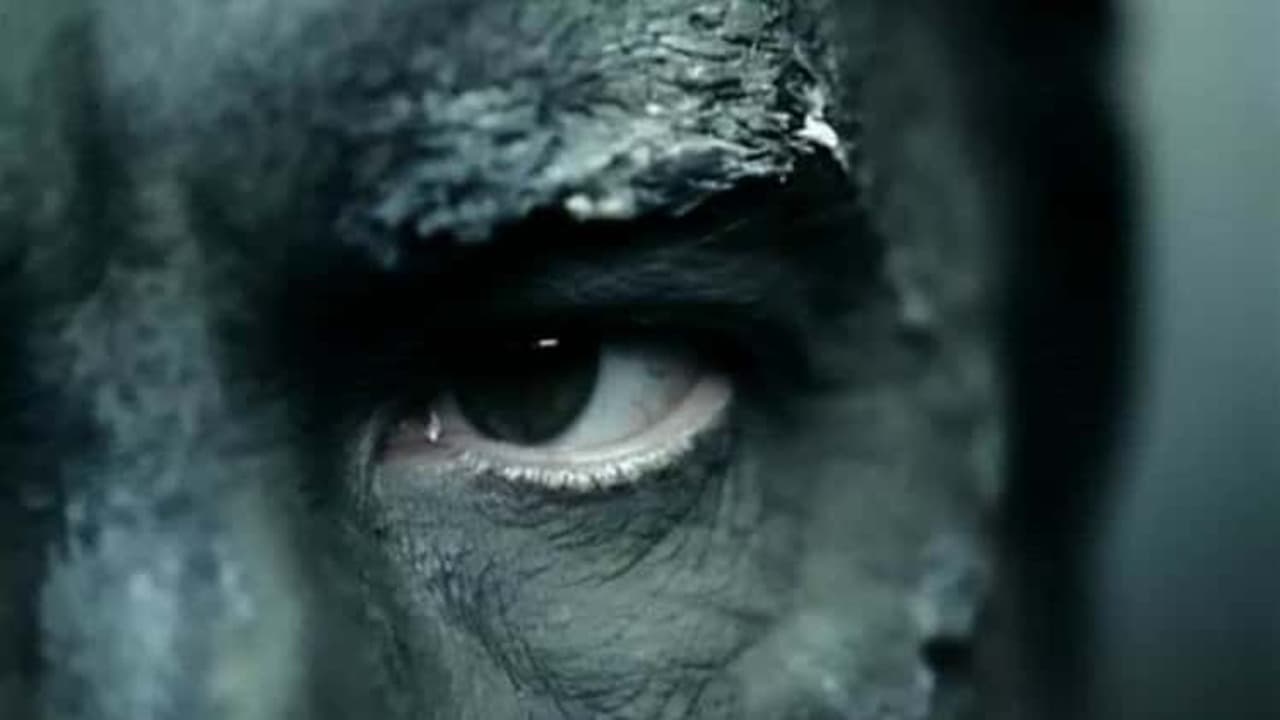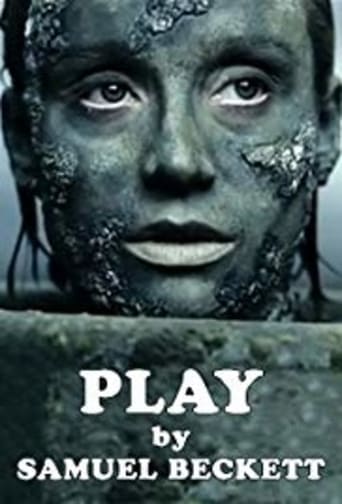

the leading man is my tpye
... View MoreA Disappointing Continuation
... View MoreIf you like to be scared, if you like to laugh, and if you like to learn a thing or two at the movies, this absolutely cannot be missed.
... View MoreThis is a coming of age storyline that you've seen in one form or another for decades. It takes a truly unique voice to make yet another one worth watching.
... View More"Play" is a 15-minute short film based on a work by Samuel Beckett. The director is the late Anthony Mingella and he cast a trio of actors that he worked with on several occasions again: Rickman and Stevenson on "Truly Madly Deeply" for example and Kristin Scott Thomas on "The English Patient" of course. Rickman looked a bit like Geoffrey Rush in here I thought. Anyway, we see a world full of urns with heads coming out of these. These heads keep constantly rambling and shouting, but only talk to themselves, not to each other. The makeup work was maybe the best thing about this little movie. It added a nice atmospheric touch to it. i cannot say I was too amazed by the contents however. I did not care for any of the 3 main characters to be honest, neither in a positive nor negative way, and that's usually the worst that could happen. Also, if you are not an English native speaker, make sure you get subtitles, because the dialogs are incredibly fast from start to finish. Final verdict: not a great watch.
... View MoreOne would think that three people sitting in urns, not moving, telling the same story twice would be dull and boring, but its not. Using cross cutting and cinema tricks to make what on stage is a very static, very dull and over rated piece of twaddle, Anthony Minghella had fashioned an interesting and quite stimulating piece of film. What the point of it all is or is not I will leave up to the viewer. The real achievement of this film is how it makes essentially a play where nothing physically happens into a movie with motion and movement and excitement (of a sort). Film students would be hard pressed to find a better example of what it means for the cinema to be in motion.
... View MoreThis adaptation is one of the most impressive of the often variable series of Beckett on Film productions. Anthony Minghella - I must admit I have not seen his well known films - is spot-on with an interesting interpretation; replacing the quick-fire spotlighting of a dark stage with subtly worked angles, and largely close ups of the three main actors. Juliet Stevenson, Kristin Scott Thomas and Alan Rickman are magnificent; what a task it must have been to have learned all those rapid-fire lines. The camera itself is a player, with its buzzing, denoting fore-grounding and focus on characters. A brilliant editing job is achieved; the play's cyclic repetition is negotiating excellently. This is a very inscrutable text at first viewing, but considering the same material is repeated, many of the verbal tricks become clearer. A convoluted narrative, made up of three different perspectives; always, the language is masterful in its precision. A fine adaptation; perfectly captures the material of a sometimes-overlooked play: one of Beckett's shorter and less lauded works, but one every bit as deadening and obliquely shattering in its impact as the others. Rating:- **** 1/2/*****
... View More'Play' is one of Beckett's most delightful confections, a farce, a vision of hell, a discordant fugue, a logorrheic din: as much a parody of Sartre's 'Huis Clos' as Sunday supplement suburban entanglements.Three heads - a man, wife, and mistress - look out from urns, and relate the story of the man's affair and the wife's reaction to it, in a rhythmic, overlapping gabble, repeated twice to convey the idea of eternity. These lives, brought to crisis point by a very physical interruption - adultery -are condemned to a disembodied, inhuman, mechanical repetition of a previous existence.Here, Beckett's interest in memory is at its most alienated - recalling the past is not an act of retrieval, an attempt to piece fragments of a shattered identity as in, for example 'Krapp's Last Tape'. It is a punishment, devoid of poetry, oppressively banal. Worse, the reminiscences are prompted by an unseen lighting man, like a Gestapo interrogator, switching speedily between characters, creating the play's rhythm, forcing them into 'life'. Much as they might like to, they cannot hide, they are at this man's mercy.You can imagine the effect in the theatre: not only is the mundanity of everyday life shown to be mechanical, barren, dead, with the urns and the repetition not a metaphor for hell or limbo, but for life; but the way these insignificant lives are interrogated, as by the Gestapo, or God, or their own conscience, or paralysed desires, or us, or SOMEBODY, forces us to admit that we don't live very well.Minghella, unlike his 'Beckett on film' collaborators, eschews over-fidelity. He keeps Beckett's words, but is radically unfaithful (a compliment!) to the play, liberated from theatrical constraints. His bombardment of montage; his intrusive use of colour, sound, camera angles; his turning Beckett's lighting man into the camera, with its clicks and whirrs and zooms; all fundamentally destroy Beckett's theatrical space.A condition where hell mirrors suburban life, where immobility , darkness, emptiness, inertia are the tenets, is given an incongruous energy, a visual excitement. Beckett's verbal and lighting rhythms are transformed into those of editing. Life in hell no longer seems that dull and repetitive; neither, by extension, do our own lives. The intrusive, oppressive interrogation of the light becomes the more distanced voyeurism of the camera - it is not this latter that breaks the space but the editing.This is an excellent example of an artist freeing himself from constraints, undermining his text, while remaining superficially faithful. Surely the appropriate response to 'Play' is to play. A very brave adaptation.
... View More